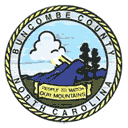Soil and Water Testing
go.ncsu.edu/readext?864099
en Español / em Português
El inglés es el idioma de control de esta página. En la medida en que haya algún conflicto entre la traducción al inglés y la traducción, el inglés prevalece.
Al hacer clic en el enlace de traducción se activa un servicio de traducción gratuito para convertir la página al español. Al igual que con cualquier traducción por Internet, la conversión no es sensible al contexto y puede que no traduzca el texto en su significado original. NC State Extension no garantiza la exactitud del texto traducido. Por favor, tenga en cuenta que algunas aplicaciones y/o servicios pueden no funcionar como se espera cuando se traducen.
Português
Inglês é o idioma de controle desta página. Na medida que haja algum conflito entre o texto original em Inglês e a tradução, o Inglês prevalece.
Ao clicar no link de tradução, um serviço gratuito de tradução será ativado para converter a página para o Português. Como em qualquer tradução pela internet, a conversão não é sensivel ao contexto e pode não ocorrer a tradução para o significado orginal. O serviço de Extensão da Carolina do Norte (NC State Extension) não garante a exatidão do texto traduzido. Por favor, observe que algumas funções ou serviços podem não funcionar como esperado após a tradução.
English
English is the controlling language of this page. To the extent there is any conflict between the English text and the translation, English controls.
Clicking on the translation link activates a free translation service to convert the page to Spanish. As with any Internet translation, the conversion is not context-sensitive and may not translate the text to its original meaning. NC State Extension does not guarantee the accuracy of the translated text. Please note that some applications and/or services may not function as expected when translated.
Collapse ▲Happy Spring! As gardening gets into full force, we have received several questions about soil testing, and what information you, as a homeowner, can gather from your current soil to cultivate the most beautiful blooms or the tastiest tomatoes.

Soil testing accurately provides a soil’s composition so as to allow for the best amendment recommendations.
Soil Testing
The N.C. Department of Agriculture offers soil testing year-round, and free of charge from April 1st to November 30th (a $4.00 per sample fee is assessed during “Peak Season’, from December 1stto March 31st).
Pick up a box and instructions for submission from your local N.C. Cooperative Extension office. Mail your samples to Raleigh, and the results will be mailed to you, generally within a few weeks. Both the NCDA and N.C. Cooperative Extension have publications that can help you read your results and make the best decisions for soil amendments.
For more information about soil tests and resources, visit our Soil Testing Kits page.
Heavy Metal Testing
To have your soil tested for heavy metals, you will need to contact a private laboratory.
While not an exhaustive list, Pace Analytical in Asheville, NC and Waters Agricultural Laboratory in Warsaw, NC both provide heavy metal testing.
Pace Analytical – 828.254.7176
Waters Agricultural Laboratory – 910.293.2108
Well Testing
Buncombe County Environmental Health Services – 828.250.5016
Water Testing
Private laboratories such as Pace Analytical and Waters Agricultural Laboratory offer water testing services for water sources other than wells.
If you have any questions about your garden, or services available to you, feel free to call our offices at 828.255.5522.





